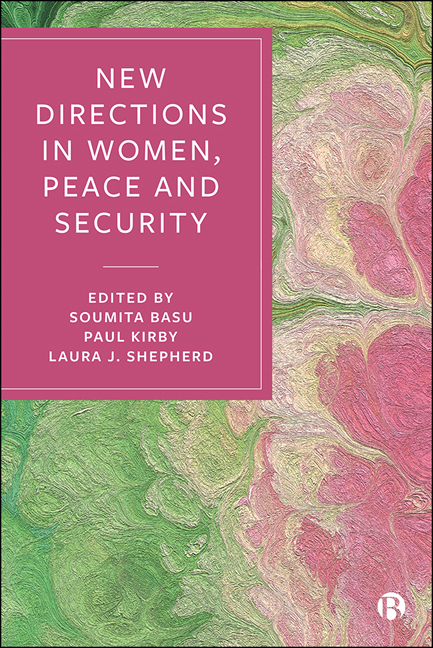9 - Global Racial Hierarchies and the Limits of Localization via National Action Plans
Published online by Cambridge University Press: 12 March 2021
Summary
We locate our reflections about the practices of the Women, Peace and Security (WPS) agenda in contemporary scholarship about race and racism in global politics. Our contribution reflects on how whiteness and white privilege are refracted in the narratives and practices of the WPS agenda through a focus on National Action Plans (NAPs). We consider who the WPS agenda is about, and who it is for, on the international stage. A central part of this investigation is interrogating whether certain NAPs are truly able to localize the international project of WPS or whether, because of global racial hierarchies, they actually simply reinforce the status quo. If the latter, NAPs – particularly those originating in the global North – can then be seen to perpetuate an image wherein the peaceful North (which nevertheless employs and relies on militarism for its practices of peace and security) is obliged to ‘rescue’ the insecure global South. Further, we examine the imagery used by different countries within their NAPs and the implications for WPS messaging by countries in the global North.
We explore the ways in which these NAPs consider violent conflicts and gendered violence in the global South against responses to similar concerns within the borders of originating countries. We contend that the WPS agenda despite its potential for emancipation, and given its framing as a universal/global normative framework, is steeped in racialized hierarchies manifested in whiteness. George Yancy (2004, pp 7– 8) writes that
whiteness [is] a synergistic system of transversal relationships of privileges, norms, rights, modes of self-perception and the perception of others, unquestioned presumptions, deceptions, beliefs, ‘truths,’ behaviors, advantages, modes of comportment, and sites of power and hegemony that benefits whites individually and institutionally.
There is a lot of complexity in the idea of whiteness. But it is nevertheless enough to know that it is a system that reifies the status quo of ‘White privileges, protections, and material advantages over People of Color’ (Sartori, 2018; see also Lipsitz, 2006; Leonardo, 2009). Whiteness born of global white supremacy was crystalized through colonization and the post-colonization relations that have been forged between the global North and global South (see Mills, 1998; Allen, 2004).
- Type
- Chapter
- Information
- New Directions in Women, Peace and Security , pp. 133 - 152Publisher: Bristol University PressPrint publication year: 2020



